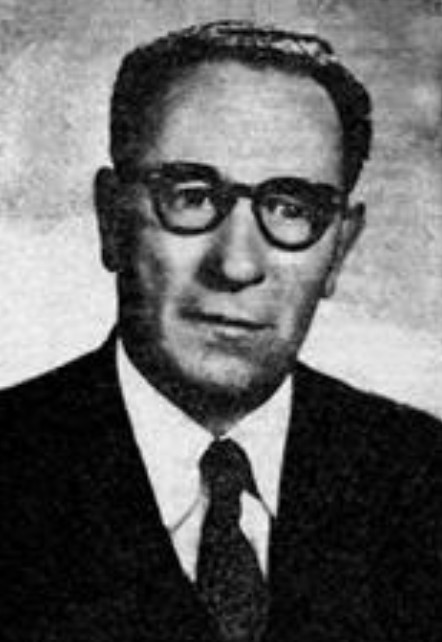Miguel Ángel Zambrano (Riobamba, 1898 – Quito, 1969) was an Ecuadorian poet, university professor, and social reformer whose work bridged literary and political spheres. Known for his late start in publishing, Zambrano released his first poetry collection, Diálogo de los seres profundos, at age 58, earning acclaim for its philosophical depth and apocalyptic tone. His poetry, which includes Biografía inconclusa (1961) and Mensaje (1968), explores themes of existentialism and social justice, resonating with Ecuador’s indigenous and working-class struggles. As a professor at the Central University of Ecuador, he also founded the Institute of Social Research and co-authored Ecuador’s 1938 Labor Code. His legacy endures through posthumous collections and preserved recordings, cementing his status as a key figure in Ecuadorian literature and social thought.
Literary Career
Miguel Ángel Zambrano’s entry into the world of published poetry was notably late; at the age of 58, he released his first book, Diálogo de los seres profundos, in 1956. Although he had written poetry privately for many years, he was initially reluctant to publish. His friend, poet Atanasio Viteri, eventually persuaded him to share his work, leading to a prominent debut. Diálogo de los seres profundos immediately gained acclaim for its profound emotional depth, existential themes, and unique, apocalyptic tone that was previously unseen in Ecuadorian literature. His intense, introspective style has been praised by literary figures such as Humberto Vacas Gómez and Edmundo Ribadeneira, who compared his work to that of the renowned poet Alfredo Gangotena.
Zambrano’s major works include:
- Diálogo de los seres profundos (1956) – His first book, known for its deep philosophical questions and introspective themes.
- Biografía inconclusa (1961) – Dedicated to the memory of fellow poet Miguel Ángel León, this collection reflects on themes of loss and remembrance.
- Mensaje (1968) – His final published work, celebrating the endurance and spirit of Ecuador’s indigenous and mestizo communities.
After his passing, a posthumous anthology, Memoria de Vida, was published by the Casa de la Cultura Ecuatoriana in 2005. This comprehensive collection includes both his published and previously unpublished works, preserving the full breadth of his literary contributions.
Academic and Social Contributions
Zambrano was a notable figure in Ecuadorian academia. He held teaching positions at the Central University of Ecuador, where he lectured on philosophy of law and Ecuadorian sociology. He was instrumental in establishing the Institute of Social Research, contributing significantly to the advancement of social sciences in Ecuador. Additionally, Zambrano served as the head of the Legal Department at the Ministry of Social Welfare. His legislative achievements include co-authoring the 1938 Labor Code, a landmark in Ecuadorian labor law that underscored his commitment to social justice.
Political Involvement
As a committed member of the Ecuadorian Socialist Party, Zambrano represented his province as a congressional deputy. His political career was marked by his dedication to labor rights and social reform, values that also permeated his poetry. His work often reflects themes of resistance and solidarity with marginalized communities, blending his artistic and political identities.
Legacy and Recognition
Miguel Ángel Zambrano is remembered as a key figure in Ecuadorian poetry and social thought. His work has been included in prominent anthologies such as Poesía viva del Ecuador (1990) and La palabra perdurable (1991). Critics have celebrated his poetry’s capacity to delve into the human psyche, often describing it as a “dialogue with the profound.” His recordings are preserved in the Library of Congress, which holds a 1961 recording of him reading selections from Diálogo de los seres profundos, further solidifying his impact on Latin American literature.
Zambrano passed away in Quito in 1969, leaving a legacy as both a poet and a pioneering intellectual in Ecuadorian academia and social reform. His poetry continues to be valued for its depth and commitment to both personal and societal introspection, positioning him as a defining voice in Ecuadorian literature.
Timeline of Miguel Ángel Zambrano’s Life
- 1898: Born in Riobamba, Ecuador.
- 1938: Co-authored Ecuador’s Labor Code while serving as head of the Legal Department at the Ministry of Social Welfare, establishing foundational labor rights in Ecuador.
- 1956 (Age 58): Published his first poetry collection, Diálogo de los seres profundos, which quickly gained acclaim and marked his formal entry into Ecuadorian literature.
- 1957: Second edition of Diálogo de los seres profundos published by Casa de la Cultura Ecuatoriana.
- 1961: Published Biografía inconclusa, his second poetry collection, dedicated to fellow poet Miguel Ángel León.
- 1961: Recorded a reading of Diálogo de los seres profundos at the Casa de la Cultura Ecuatoriana in Quito, now preserved by the Library of Congress.
- 1968: Released his final poetry collection, Mensaje, which celebrates indigenous and mestizo communities of Ecuador.
- 1969: Passed away in Quito, Ecuador.
- 2005: Posthumous anthology Memoria de Vida published by the Casa de la Cultura Ecuatoriana, including previously unpublished works.
Selected Works
Poetry
- Diálogo de los seres profundos – 1956
- Biografía inconclusa – 1961
- Mensaje – 1968
- Antología poética – 1982
- Miguel Angel Zambrano: Memoria de Vida – 2005 (posthumous collection published by the Casa de la Cultura Ecuatoriana)
Essay
El cooperativismo y el problema indígena: ensayos sobre el Ecuador y Perú by Miguel Angel Zambrano, César Augusto Venegas Casavilca – 1951
References
- Cultura en Ecuador. “Miguel Ángel Zambrano, Argonauta de ternuras.” Retrieved on October 28, 2024. Click to view.
- Rodolfo Pérez Pimentel. “Miguel Ángel Zambrano (1898-1969).” Retrieved on October 28, 2024. Click to view.
- Library of Congress. “Ecuadorian poet, congressman, and law professor Miguel Ángel Zambrano reading from his work, Diálogo de los seres profundos.” Retrieved on October 28, 2024. Click to view.
- Literatura Ecuatoriana. “Miguel Ángel Zambrano – Poeta ecuatoriano.” Retrieved on October 28, 2024. Click to view.

